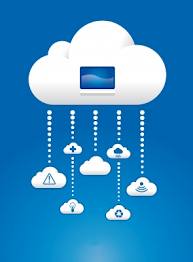Matthew Ramsey| Business2community
Internal telephone networks, switches, wires, and other equipment used to make up a significant part of the enterprise infrastructure. The rise of cloud computing has changed this and nowadays you have a cloud computing alternative to consider, as with most everything else. Cloud PBX is now a widespread phenomenon. If your organization hasn’t considered such a system instead of implementing or upgrading a traditional phone system, it probably will soon. Chances are, your business has some form of Voice-over-Internet protocol, or VoIP, in place.
Many hosted and cloud PBX systems are based on this concept. The transition is being guided by the much more expansive transfer of public switched telephone networks to VoIP. Internet based telecommunications services have been used in homes for several years. The technology has advanced to the point that businesses find it reliable enough for their telecom needs, at a much lower cost of ownership.
In recent years companies have implemented on-site VoIP PBX systems. The servers are located within the company’s office, which is fine for large companies that can afford such overhead. Organizations of all sizes, however, are now finding reliable off-site systems proving to be a much more economical choice, and which also reduce IT overhead.
Why Consider a Cloud PBX
- Reduction of expenses. Enterprises with a hosted or cloud PBX do not need the resources for maintaining the switches and wires on a constant basis. A lesser need for space, maintenance, and replacements means fewer dollars have to be put into funding the equipment, square footage, and manpower. Vendor services and computing power are also becoming less expensive, so the financial overhead is becoming less of a concern. Monthly bills are also drastically lower, especially for long distance calling.
- Open access. A cloud PBX allows a business to interact with its telecom system via an online portal. Voicemail, call logs, and the ability to direct incoming callers are included in many systems. Using the Web to access these features means that telecom needs can be managed from anywhere. Employees using the PBX can do so from off site, reducing the space requirements within the organization further and offering staff the flexibility to work from home or elsewhere.
- Automatic call-forwarding. Being that an employee can work from anywhere, it helps to have a system that can connect to someone’s cellular, home, or car phone. This supports any organization’s mobile initiatives and supports the increase in productivity that often results.
- Advanced features. A cloud PBX is capable of including remote call management features, voice messaging, and features like voicemail to e-mail or fax to e-mail. The vendor service provides all the tools for managing the enterprise-wide telecommunications system, at a much lower cost than a traditional one.
- Scalability. Enterprises and business owners can choose to scale up or down their hosted PBX system as needed. Periods of high demand might require more computing power. During slower times, features and services not required can be scaled down, reducing expenses when profit margins are lower.
A cloud PBX is yet another advancement of the cloud computing era. The advantages it can have for your organization come from many years of improvements. Lower cost of ownership plus a multitude of features comparable to those of complex on-premise systems means your enterprise can function optimally on a much lighter budget.













